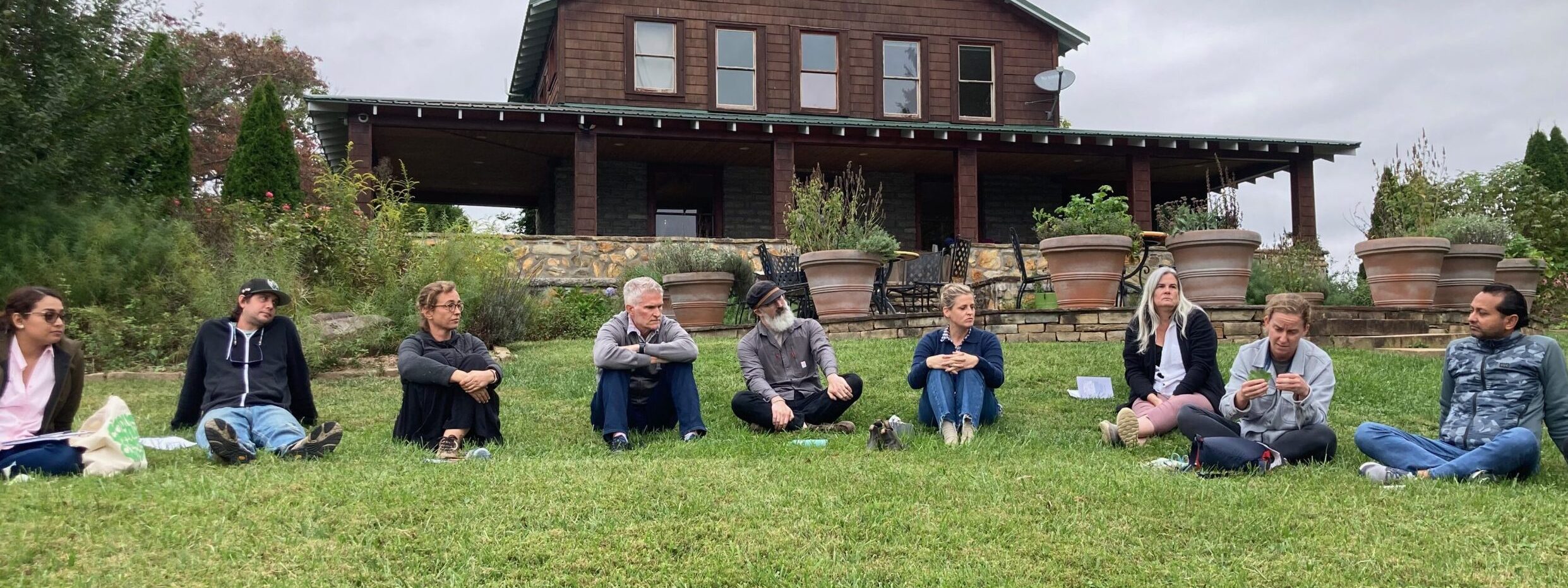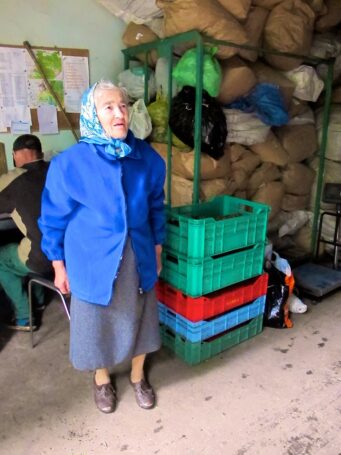Seeds of the Learning Lab

Building Collaborative Networks in the Botanical Industry
The vision for the Learning Lab was planted in studying herbal medicine with Rosemary Gladstar. I was drawn to herbal medicine because of the values at its heart. I had recently returned from research in eastern Nepal and I started studying with Rosemary Gladstar. It felt like a cultural framework for healing that was rooted in an ecological vision of wellness, one that recognizes that we can’t be well until the planet is well.
With filmmaker Terrence Youk, I co-produced the documentary film Numen to celebrate this vision at the heart of traditional Western herbalism. We called the film Numen, a Latin term that means “the animating force in all things living.”
To us, this concept expresses what is most important about any tradition that uses plants for healing – that it is a way to encounter the mystery of nature and the aliveness of the world. And that ultimately that encounter is at the root of healing. I wanted to know whether that aliveness showed up in herbs sourced from around the world. And, if so, where to find it.
Imagination
And I was inspired by the Wendell Berry quotation. At the Watershed Gathering in 1996, writer and farmer Wendell Berry once said, “As a nation we are struggling with a profound lack of imagination. We don’t see the forests being cut down to build our homes, the lakes being drained as we fill our tub. We live on the far side of a broken connection.” Not seeing the people and places on the other side, not seeing the moral and ecological consequences of producing these products, he continued, makes it easier to consume them. “Healing this broken connection,” Berry concluded, “begins with seeing beyond what the market wants us to see.” Which begins with an act of imagination.
Note, Wendell Berry said we are suffering from a failure of imagination. Not a lack of information.
Because we don’t see the consequences of our actions, we are able to ignore or forget the moral and ecological consequences of those actions.
Another way of saying something similar: We use pesticides on plants that we intend to use to heal and we think that is okay.
Seeing the Impacts of Our Ways of Living
Having the imagination to see – and the willingness to look – behind the object to see what lies in its wake, in the wake of all of our actions and all of our impacts, is the key to the shift needed.
I began following herbs to the source to explore these two questions:
- What happens when we see the conditions behind the products we consume?
- Is it possible that that relationship with the plants, with the aliveness of the world at the heart of natural medicine systems, can be found in an industry that sources herbs from around the world. If so, where? And how will I know it when I see it?
Following Herbs to the Source
I began my journey by visiting FairWild companies in Eastern Europe and then over the next few years visited producer groups and farmers in eastern Europe, Germany, the UK, the US, and India. I saw huge range of issues. Some companies were sourcing herbs in ways that respected the plants and the people involved. Many were doing nothing of the sort.
I thought it would be a question with an answer. And yet, as I listened to the voices of different stakeholders sharing their perspectives and challenges, I found that wasn’t at all the case. Part of that is just that sourcing any raw material is complex. But sourcing up to one or two hundred botanicals from around the world, each species with different needs from different places, is mind bogglingly complex. There were no simple answers.
My vision was to share information that could transform the industry for the better. My goal was large scale change. But I began to see that scaling up was what created many of the problems I was seeing.
And so I began to wonder whether large scale change maybe wasn’t the way to get there. I wondered whether enduring change in fact involves a lot of smaller changes everywhere, especially in one-on-one relationships. I then began to ask:
- What are the conditions needed to make these relationships possible?
- What does it take to create and sustain those conditions?
- What is needed to do business in a way that truly honors people and plants and the planet, all the way to the source?
What is Needed for Enduring Change
And then the answers became less about what to do: this or that certification, a contract or not. And more about how to be: How to listen. How to be respectful. To be honorable. To keep your word. To treat people as people and plants as alive.
We needed to change our ways of thinking. Ways of thinking that consider that some things, some people, some places are expendable, are not worthy of our respect, while others are.
I organized the Learning Lab as a place to bring different stakeholders in the herbal products industry together to create a container to build deeper relationships on these other qualities.
I wanted to see what happens when we shift the place from which we do the work. What happens when we begin our journey from a place of awe and gratitude and respect? From a deep sense of being in relationship to the aliveness of the world?
Reprogramming our Minds
How can we then seed something that arises from this different kind of connection, one that holds our relationship to plants at the center?
In her 2004 keynote talk at Climate Day, Living Systems, Living Values: The Lessons of Indigenous Regenerative Ecosystem Design, Lyla June said “The secret is not how you manage the land or the technology you use. The secret is the heart with which you manage it.”
“We need to reprogram our minds to become organized around reciprocity, restraint, reverence,” she continued. “Around respect. Responsibility. Regeneration. Relationality. These are the key components of the software that is needed.”
The Learning Lab focuses on developing the software needed. And then, from this place of respect, to ask: What do we want to grow? What are the conditions needed to sustain this relationship with ourselves, with the plants, and with each other?



Comments